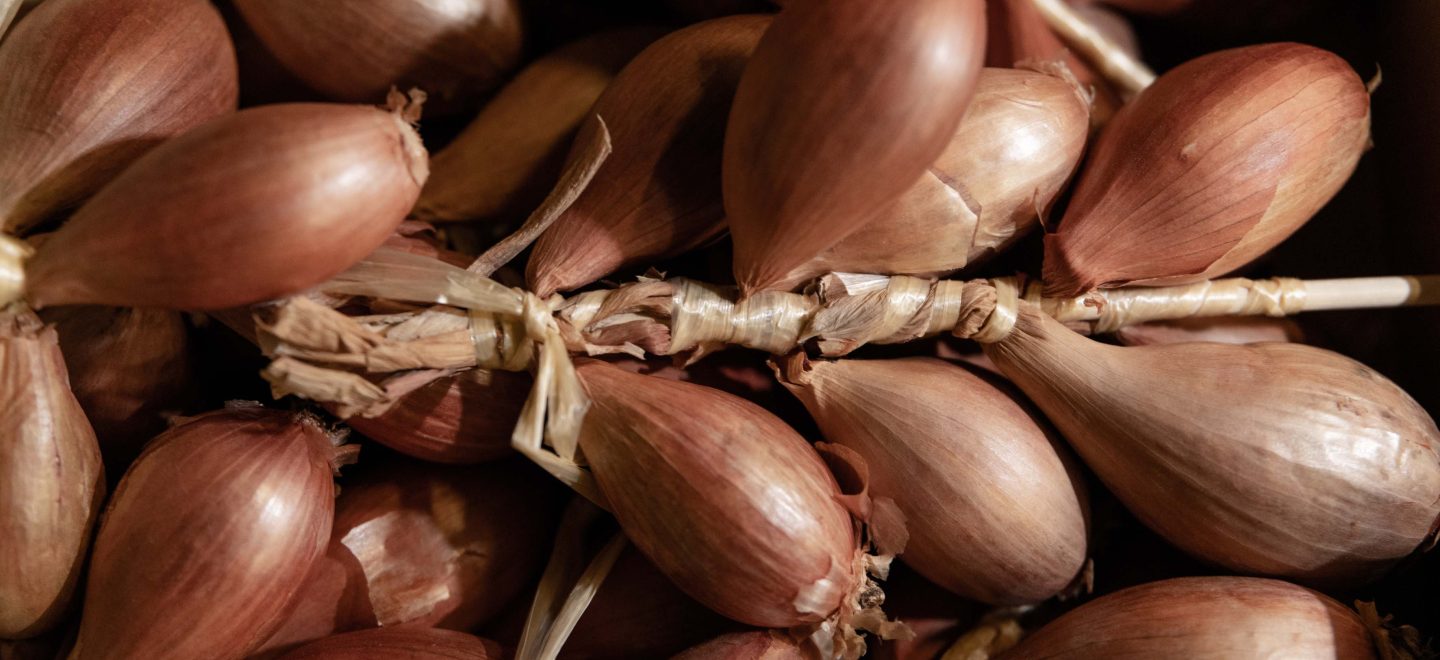Last August in northern Finistère, shallot producers and distributors founded the Collectif de l’Échalote Traditionnelle (Traditional Shallot Collective). Their aim was to unite the regional industry and achieve recognition for the traditional shallot as an exceptional product through obtaining the French Label Rouge logo and a “traditional Breton shallot” PGI (Protected Geographical Indication). So far, more than 100 regional players have joined this collective, including Pouliquen.
Uniting local and regional stakeholders
Created as a non-profit organisation, Collectif de l’Échalote Traditionnelle’s primary objective is to unite industry players and facilitate the conservation and development of this crop in Brittany. To that end, members of the collective and the Collective’s employee, agricultural engineer Camille Le Monnier, meet with sector stakeholders, producers, breeders and distributors (both organic and conventional) to publicise the project. Regular workshops and consultation meetings are held so that the industry develops in a collective fashion with the involvement of all its stakeholders.
PGI and Label Rouge
Collectif de l’Échalote Traditionnelle is seeking a twofold recognition: French Label Rouge certification and a PGI (Protected Geographical Indication).
Label Rouge is a French brand which enables consumers to identify products whose quality is superior to that of comparable items. In this case, traditional shallots could be compared to seed-grown shallots. The Label Rouge logo is familiar to French consumers and would make it possible to rapidly identify the products bearing the label.
As for Protected Geographical Indication (PGI), this label “identifies a raw or processed agricultural product whose quality, reputation or other characteristics are linked to its geographic origin. PGI is related to skill. It is not self-created; rather, it protects an existing production, thereby giving protection at both the national and international levels.” PGI is therefore of particular value to exporters such as Pouliquen.
In order to obtain these official certifications, the Breton traditional shallot must meet a set of strict specifications which have been pre-approved by the certifying bodies. These specifications are currently being drawn up.
A head above seed-grown shallots
Pouliquen chose to work exclusively with traditional shallots because of their high-quality flavour and the way that they are cultivated: entirely by hand, from planting to harvesting and packing. These firm, shiny and dry alliums are recognisable by the mark at their base, which is a sort of scar left by the cultivation process. Made up of several bulbs, they contain a series of circular layers which come apart when they are cut. Traditional shallots have a slightly sweet flavour.
The success story of the Roscoff onion
This is not the first time that Bretons have sought certification for a vegetable. Indeed, in 2009 the Roscoff onion obtained the CDO (Controlled Designation of Origin) label, and went on to earn the PDO (Protected Designation of Origin) label in 2013.
After this recognition was achieved, the cultivation of this little round vegetable increased significantly, ensuring the variety’s protection as well as its supply. The number of Roscoff onion growers increased from 55 to 90, nine times the volume of onions was sold, and the area planted with this crop tripled in size.
We wish the traditional Breton shallot the same success, and will follow this story with interest!
